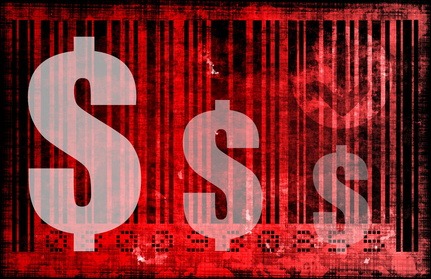The question above is tough. The historic downgrade of the US by S&P is set to aid some currencies against the dollar, while others will suffer. One thing is certain: the week will open with a storm. Here are estimates on 7 currency pairs, assuming that policymakers around the world will not act in extraordinary ways.
The credit downgrade was expected, and doesn’t reflect all the big three: Moody’s and Fitch left the perfect AAA rating unchanged. On the other hand, the downgrade is a precedent, and affects the benchmark of global bonds and money markets, that don’t have many places to go to. An immediate impact is very likely. The endless flow of big news means that after a few sessions, the effect will fade away. Let’s look at currencies, starting from the more probable outcomes, to the uncertain ones:
Update, Sunday 13:36 GMT: The ECB is holding an emergency meeting at 17:00 GMT to discuss buying of Italian bonds. This make help the euro. In addition, there are discussions between G-7 and G-20 officials, about making a statement. The nature of this statement is unclear.
* Click on each currency pair for a detailed weekly outlook on it.
- USD/CHF: The Swiss franc is the ultimate safe haven currency. The “sophisticated” intervention by the SNB failed very quickly. A drop with a big gap is highly likely.
- USD/JPY: The yen is the second safe haven currency. It is also set to plunge. The weakness of the Japanese economy and the willingness of the BOJ to intervene mean that the effect is not expected to be so strong as in the previous pair, but it will be significant enough.
- USD/CAD: Canada is very dependent on the US, and also relies on oil prices. Both are headed down, and the loonie usually follows. USD/CAD is set to rise, and can make an attempt on parity.
- GBP/USD: The British economy is dragging its feet, to say the least. Nevertheless, the UK has managed to distance itself from the European debt crisis and to seem “fiscally safe”. Pound/dollar is set to rise, although not as strong as the safe haven currencies.
- AUD/USD: Despite a strong economy and a perfectly stable AAA rating, the Aussie is considered a risk asset. It suffered from the European debt crisis and is likely to drop.
- NZD/USD: Similar to Australia, global fears weaken the kiwi, despite the impressive recovery from the earthquakes.
- EUR/USD: The euro has a raging debt crisis, that dominates the headlines and impacts the whole world. The recent episode of the crisis was an announcement by Italy’s PM Berusconi to bring forward fresh austerity measures. In return the ECB is expected to buy Italian bonds, lower the yields and restore confidence. If this indeed goes through, the euro has room to rise in the short term. In the long term, massive unsterilized bond buying is actually quantitative easing (or euro printing) and it may hurt the euro. And, the seriousness of the ECB it is still be seen. The moves in Euro/dollar are likely to return to the debt crisis quite fast.
Commodities: Oil is likely to continue downhill, while gold has room for rises. For in depth analysis of oil and gold, see Trading NRG.
As aforementioned, a credit downgrade of the US is an unprecedented event – there’s no past to learn from. Only volatility seems certain. Given the fact that this was expected, other agencies haven’t moved and that China and all the rest have no real alternatives, the dust will likely settle after a few sessions, giving way to economic indicators, the European debt crisis.
If policymakers in the US and in other places decide to act before markets open, I’ll update these assessments. In any case, trade with extreme caution: high volatility with with leverage is risky.
Further reading:
- Simon Smith asks: Do we listen to the ratings agencies?
- Jamie Coleman analyzes the downgrade and states that it wouldn’t have mattered if it happened two weeks ago.
- John Kicklighter analyzes the expected moves on Monday.

